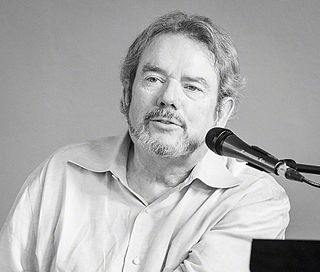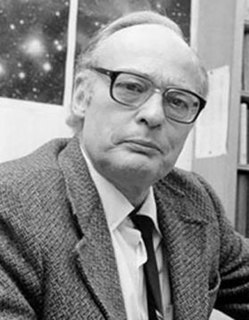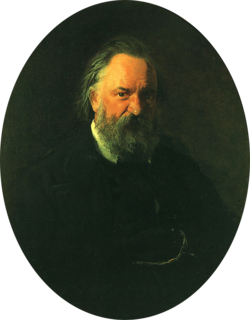A Quote by Jimmy Webb
I think it's prima facie evidence for the existence of God because for me to grow up and actually end up working with Glen Campbell is almost unbelievable.
Related Quotes
Here is the cosmological proof of the existence of God - the design argument of Paley - updated and refurbished. The fine tuning of the universe provides prima facie evidence of deistic design. Take your choice: blind chance that requires multitudes of universes or design that requires only one.... Many scientists, when they admit their views, incline toward the teleological or design argument.
I think the fault is more with historicists who have stubbornly failed to develop a good theory of historicity. By simply resting on the feeble laurels of prima facie plausibility ('Jesus existed because everyone said so') and subjective notions of absurdity ('I can't believe Jesus didn't exist!'), the existence of Jesus has largely been taken for granted, even by competent historians who explicitly try to argue for it.
I now believe there is a God...I now think it [the evidence] does point to a creative Intelligence almost entirely because of the DNA investigations. What I think the DNA material has done is that it has shown, by the almost unbelievable complexity of the arrangements which which are needed to produce life, that intelligence must have been involved in getting these extraordinarily diverse elements to work together.
An atheist is someone who is certain that God does not exist, someone who has compelling evidence against the existence of God. I know of no such compelling evidence. Because God can be relegated to remote times and places and to ultimate causes, we would have to know a great deal more about the universe than we do now to be sure that no such God exists. To be certain of the existence of God and to be certain of the nonexistence of God seem to me to be the confident extremes in a subject so riddled with doubt and uncertainty as to inspire very little confidence indeed.
In 1867, George Campbell, Duke of Argyll, had published The Reign of Law, a book that Darwin found deeply annoying. A supporter of Richard Owen, Campbell argued that while evolution (or Development) might be observable in the fossil record, it was merely evidence of God's purpose. God, for example, would cause horses and oxen to evolve in time to meet human needs. The brightly colored plumage of birds, Campbell went on, were simply God's decorations of nature for humanity's enjoyment.
I think you grow up on every shoot you do. You do grow up because you're away from home, you're not with all of your friends constantly and in that environment you have to be grown up. You're working with adults and you're sort of expected to be older and that's how I like to put myself across. I don't want to come across as constantly messing about.
I mean, in 'Big' and 'Pleasantville,' it's a journey that the characters go on where I think they come to kind of meet themselves at the end and who they actually are and give full voice to who they actually are. And that, you know, obviously fascinates me for some reason. Maybe I didn't adequately grow up.
I want to tell you about the God that actually showed up and healed my heart. Not the God I grew up, because the God I grew up was fundamentally, and I use the word advisedly, fundamentally untrustworthy -- schizophrenic, narcissistic, unreachable, unknowable, and my concept within which I grew up was that Jesus -- He likes me -- but He came to save me from God the Father -- who was the one who was angry and distant, and unreachable, unknowable. All of that had to come crashing down.







































